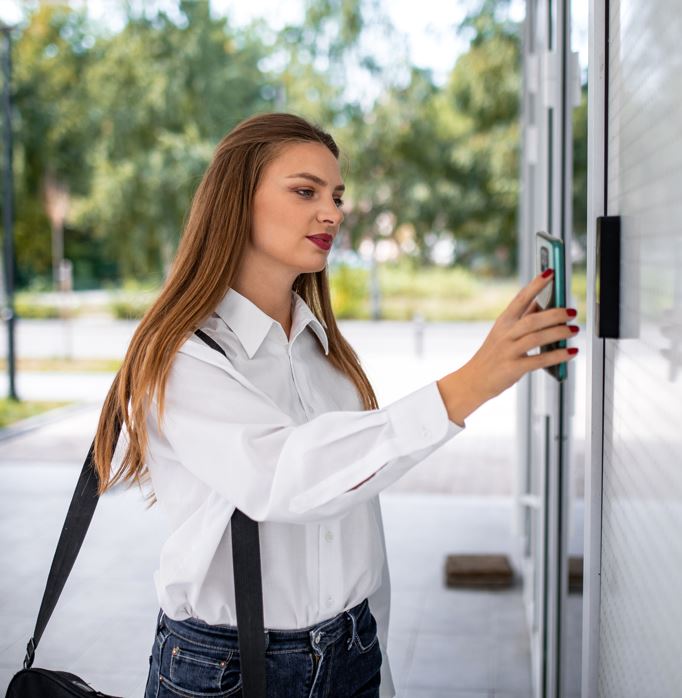High Security Locks – When Standard is NOT Enough!
High-security locks are designed to provide enhanced protection against unauthorized access, manipulation, and forced entry. These locks are often used when standard locks may be insufficient to meet the security requirements. Here are some features and scenarios that define high-security locks and when they are needed:
 Features of High-Security Locks:
Features of High-Security Locks:
Advanced Key Control: High-security locks employ advanced key control measures to prevent unauthorized key duplication. Key blanks and cutting procedures are restricted to authorized individuals or locksmiths.
Anti-Picking Mechanisms: High-security locks incorporate advanced mechanisms that make them resistant to picking, a common method intruders use to manipulate traditional locks.
Anti-Bumping Design: Bumping is a technique where a specially crafted key is struck to manipulate the lock’s pins. High-security locks are designed to resist bumping, enhancing their resistance to covert entry methods.
Drill Resistance: High-security locks often have reinforced components and materials to resist drilling attacks. Drill-resistant plates and hardened steel components are common features.
Tamper Resistance: These locks are designed to resist tampering and destructive entry attempts. Reinforcements and anti-tamper features are integrated into their design.
Strong Materials: High-security locks are constructed from durable materials such as hardened steel, which adds to their resistance against physical attacks.
Restricted Keyways: The keyway design is restricted to specific manufacturers or locksmiths, preventing the use of generic keys. This enhances security by limiting access to authorized personnel.
Security Certification: High-security locks often undergo testing and certification by independent organizations or standards bodies, confirming their compliance with established security standards.
When High-Security Locks Are Needed:
Critical Infrastructure: High-security locks are crucial for protecting critical infrastructure, including government buildings, utilities, and sensitive facilities, where a breach could have severe consequences.
Commercial Properties: Businesses with valuable assets or sensitive information may opt for high-security locks to protect against theft or unauthorized access.
Residential Properties: High-security locks can be used in residential settings, especially for individuals with a heightened concern for security. This may include high-profile individuals, those with valuable possessions, or those residing in areas with higher crime rates.
Financial Institutions: Banks and financial institutions typically use high-security locks to safeguard vaults, ATMs, and other critical areas.
Government Facilities: Government buildings and offices often require high-security locks to protect classified information and maintain the integrity of sensitive areas.
Data Centers: Facilities housing servers and data storage equipment use high-security locks to prevent unauthorized access and protect against data breaches.
Jewelry Stores and Museums: Businesses that house high-value items, such as jewelry stores and museums, often deploy high-security locks to prevent theft and unauthorized entry.
Residential Communities: Gated communities and high-end residential areas may use high-security locks to enhance the overall security of the neighborhood.
The decision to use high-security locks depends on the specific security needs of a given environment. Consulting with a security professional or locksmith can help assess the level of security required and determine the most appropriate locking solutions for a particular situation.
Who should install high-security locks?
The installation of high-security locks is a critical task that requires precision and expertise to ensure the locks function properly and provide the intended level of security. Here are some considerations regarding who should install high-security locks:
Professional Locksmiths: Certified and experienced locksmiths are often the most qualified individuals to install high-security locks. They have the necessary skills, knowledge, and tools to perform precise installations and adjustments.
Security Professionals: Security experts or professionals with a background in physical security may also be well-suited for installing high-security locks. They understand the broader security context and can provide valuable insights into the best placement and configuration of locks.
Manufacturer-Authorized Installers: Some high-security lock manufacturers have specific certification programs for locksmiths or installers. Manufacturer-authorized installers are trained and authorized to install their products, ensuring compliance with installation standards.
Security System Integrators: Companies or individuals specializing in security system integration may have the expertise to install high-security locks as part of a comprehensive security solution. This is particularly relevant in environments where electronic access control systems are integrated with high-security locks.
It’s important to note that installing high-security locks is a specialized task, and DIY installations are not recommended. Proper installation is crucial to ensuring the locks function as intended and provide the maximum level of security.
When hiring a professional to install high-security locks, consider the following:
Credentials and Certification: Look for locksmiths or security professionals who are certified, licensed, or authorized by relevant industry organizations or manufacturers.
Experience: Choose professionals with a proven track record of successfully installing high-security locks. Experience in handling similar projects is a valuable indicator of expertise.
References: Ask for references or reviews from previous clients to gauge the installer’s reputation and the quality of their work.
Consultation: A qualified installer should assess your security needs and recommend the most appropriate high-security locks for your specific situation.
By selecting a skilled and reputable professional to install high-security locks, you can help ensure that the locks provide the desired safety and security you require.
